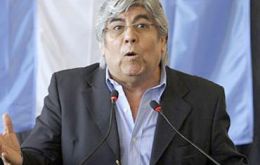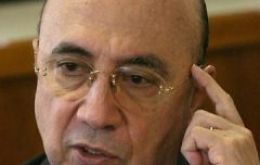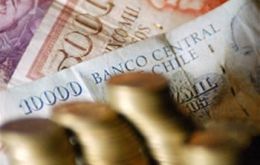MercoPress. South Atlantic News Agency
Economy
-
Tuesday, August 17th 2010 - 08:58 UTC
Uruguay: world’s leading consumer of beef with 58.2 kilos per capita per annum

Uruguayans eat an average of 58.2 kilos of beef which makes them the world’s leading consumers per capita, per annum according to the country’s president of the National Meats Institute, INAC, Alfredo Fratti.
-
Monday, August 16th 2010 - 18:56 UTC
U.S. Dollar Direction In 2nd Half of 2010

The last two years have been quite volatile in financial markets. First, in the fall of 2008, it appeared that the entire global economic system was headed toward inevitable destruction as US financial institutions Bear Stearns, Fannie Mae & Freddie Mac, and Lehman Brothers all collapsed in September of ’08.
-
Monday, August 16th 2010 - 05:08 UTC
Argentina official July inflation, 0.8%; private sector and unions: 1.9%

Argentina’s annual inflation rate in July rose to the highest level since May 2006, led by higher costs for leisure goods and clothing. Consumer prices increased 11.2% from a year earlier and 0.8% from June the national statistics institute Indec, said.
-
Monday, August 16th 2010 - 04:20 UTC
Strong rebound of the German economy: GDP 3% growth in 2010

German gross domestic product (GDP) could grow by as much as 3% in 2010, as positive quarterly figures have stoked optimism in Europe's largest economy, Die Welt newspaper reported on Sunday, citing Economy Ministry officials.
-
Saturday, August 14th 2010 - 03:07 UTC
“Inflation expectations” gear Brazilian central bank rates policy

Brazilian central bank President Henrique Meirelles said analysts were surprised by a smaller- than-expected interest rate increase in July because they misunderstand signals sent by policy makers beforehand.
-
Friday, August 13th 2010 - 07:00 UTC
“Discriminatory trade” measures could limit Chinese interest in Argentina

As China is gaining ever wider economic influence, Argentina runs the risk of losing the opportunity to benefit from the trend by keeping discriminatory measures against Chinese products, an Argentine expert warned.
-
Friday, August 13th 2010 - 04:06 UTC
Asian and Latinamerican corporations buying Argentine assets

In the nineties most Argentine companies were purchased by companies with headquarters in New York or Madrid but in this decade they come from less glamorous countries: China, India, Brazil, Russia and unsuspected places such as Mexico, Peru and Colombia.
-
Friday, August 13th 2010 - 02:40 UTC
UK faces “choppy recovery” in the next two years warns Bank of England

The UK economy faces a “choppy recovery” over the next two years, the governor of the Bank of England, Mervyn King, has warned. His comments came as the Bank lowered its economic growth forecast and said inflation would stay higher for longer than previously forecast.
-
Thursday, August 12th 2010 - 20:31 UTC
Russian drought and fires catches the US with record crops of corn and soybeans

Russian President Dmitri Medvedev says a full one-quarter of Russia's grain crops have been destroyed by weeks of drought and wildfires, leaving many Russian farmers close to bankruptcy.
-
Thursday, August 12th 2010 - 18:11 UTC
US Dollar Drops To Its Lowest Level In Six Months

Globally the US dollar has been sinking this year and the Chilean peso has fared particularly well against it.
